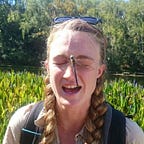Protecting wildlife holistically
Preventing poaching before it happens, rehabilitating rhinos impacted by poaching, and inspiring local communities, Rhino Revolution does it all.
What started as Hoedspruit residents coming together to do something about the rhino poaching crisis escalating around them, has evolved into an international non-profit organisation, ‘Rhino Revolution’. The small town of Hoedspruit is nestled in the heart of the UNESCO world heritage site Kruger to Canyons Biosphere Reserve, which encompasses national and provincial nature reserves including the Blyde River Canyon Nature Reserve and the Kruger National Park, which is the biggest national reserve in South Africa. Rhino Revolution is ideally situated to execute its holistic three-prong approach to protect rhino and other endangered species impacted by poaching in the region. This approach includes creating the next generation of conservationists, deterring poaching, and rehabilitating rhinos orphaned by poaching events.
Rescue, rehab, & release with minimal human interaction
Rhino Revolution’s rehabilitation facilities are specialised for rhinos. Rescued orphan rhino calves are often deeply traumatised and injured from the brutal events of their moms being killed for their horns. At Rhino Revolution these orphaned calves receive veterinary and emotional care. To set the rescued rhino calves up for success when they are released into the wild Rhino Revolution, Anna Mussi, ensures the calves receive minimal human contact during their rehabilitation, this allows them to grow into self-sustaining wild rhinos.
Rhino Revolution rescued five white rhino calves in 2016, they rehabilitated and fully rewilded them, releasing them together as a ‘crash’ in 2018. They still live together as a crash though the males occasionally wander off for a while. Currently, they have two white rhinos in the rewilding phase, these rhino have no contact with humans and once they reach sexual maturity it will be safe to release them into an open system. Rhino Revolution’s black rhino breeding program involved the introduction of a male and female black rhino onto a local conservancy. The pair has had one calf and the female is currently pregnant so they are holding thumbs for the birth of a second calf later this year.
Anna finds rehabilitating animals, be they endangered or not, incredibly rewarding. However, she feels rehabilitation and rewilding is just a “band-aid to patch up a greater problem”. “When looking at the bigger picture, we have to prevent poaching or try, in as many ways as possible, to reduce poaching from happening in the first place.”
Photo by Mike Kendrick.
Prevention is better than cure
Rhino Revolution works at stopping poaching before it happens — ‘anti-poaching.’ This includes dehorning rhinos and mounted horseback patrols to ward off poachers in the Greater Kruger Area. Anna feels dehorning rhinos is not a long term solution but that it does disincentivize poaching in the short term. Rhino Revolution’s daily horseback patrols have trained guards riding retired racehorses. These guards can quickly and silently navigate areas inaccessible to vehicles to monitor and deter criminal activity.
Anna explains though statistically, the number of rhinos being killed may be decreasing, the proportion of the rhino population killed every year is still increasing. She wants “governments to speak out against rhino poaching, to make sentences harsher for the crime, and reduce corruption within the government.” She believes “powerful people can make a dramatic difference to achieve the change we [Rhino Revolution] want to see.”
Inspiring and educating youth
Rhino Revolution believes if the youth from impoverished local communities are educated and inspired they will be the conservationists of tomorrow. To educate and empower the youth’s understanding of natural heritage, Anna believes in building empathy, care, and an understanding not just for wildlife but domestic animals too. Rhino Revolution contributes to developing kids’ empathy for domestic animals during their weekly educational outreach lessons. To facilitate children from surrounding communities understanding and empathy for wild animals, Rhino Revolution facilitates the attendance to rhino de-hornings and trips into Kruger National Park. The hope is to create future youth leaders and ambassadors for the environment. Anna explains that “If local children have never seen or experienced their natural heritage, it’s very difficult to encourage positivity towards wildlife and negative emotions towards poaching.”
Anna’s story
Anna fell in love with the African bush while on a horseback safari holiday in South Africa. She left her career with racehorses in the United Kingdom, to work in the horse safari industry in South Africa. Later she took up the position of vet assistant to the renowned wildlife vet, Dr Peter Rogers, in this position she gained hands-on experience in wildlife care and rehabilitation. Now she works as Rhino Revolution’s manager. She feels “blessed to be able to work with Africa’s iconic rhinos and pangolins and assist in rescuing, rehabilitating and releasing them back into the wild, where they belong.”
Rhino Revolution partners with Wildcards!
Wildcards will launch cards to raise funds for Rhino Revolution. Wildcards uses blockchain.
technology for wildlife conservation fundraising. Their team of passionate environmentalists and technologists from South Africa, created a new conservation donation model which uses engagement mechanics inspired by gaming and radical economics. Their platform taps into a unique community of funders and allows them to support conversation, become a guardian of endangered animals, or display and share their profiles, all in a social, gamified and transparent way. To find out more about how Wildcards works you can read Wildcards: an unprecedented means of funding conservation.
Wildcards is ecstatic about connecting funders with conservation agencies having a real-world impact on the protection of wild animals and helping to rewild the world.
Follow Wildcards on Instagram: @wildcards_world
Follow Wildcards on Twitter: @wildcards_world
Follow Wildcards on Facebook: @wildcards.conservation
Join us on: Discord
Rio Button
